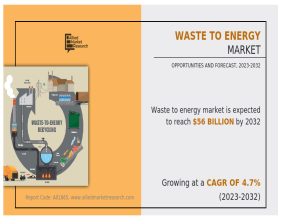Highlights
- The Caracas Stock Exchange (BCV) was founded in 1947 and is Venezuela's primary securities exchange.
- In 1974, it merged with a competitor to become the sole securities exchange in the country.
- The exchange plays a key role in facilitating capital market activities and economic growth in Venezuela.
The Caracas Stock Exchange: A Cornerstone of Venezuela's Financial Market
The Caracas Stock Exchange (Bolsa de Comercio de Caracas, BCV) is one of the most significant financial institutions in Venezuela, serving as the country's primary securities exchange. Established in 1947, the BCV has a long history of supporting capital market activities, contributing to the economic development of Venezuela. Its creation marked a pivotal moment in the country's financial history, as it provided a formalized platform for the buying and selling of securities in Venezuela, aligning the nation's economy with global financial systems.
- The Formation of the Caracas Stock Exchange
The Caracas Stock Exchange was founded in the mid-20th century to address the growing demand for a formalized securities market in Venezuela. The exchange was established with the aim of providing companies and investors with a regulated platform for trading stocks, bonds, and other financial instruments. The creation of the BCV signified the beginning of modern capital markets in Venezuela, allowing for greater transparency, efficiency, and access to financing for businesses.
Before the creation of the BCV, the country's financial markets were fragmented, and there were limited opportunities for businesses to raise capital through public offerings. By providing a centralized marketplace, the exchange helped improve liquidity, foster investor confidence, and promote economic growth.
- The Merger of 1974
In 1974, the Caracas Stock Exchange merged with its competitor, the Venezuelan Stock Exchange (Bolsa Venezolana de Valores, BVV), creating a single securities exchange for the entire country. This strategic merger consolidated Venezuela's securities market and improved the efficiency of capital raising in the country. By combining the two exchanges, the BCV became the exclusive venue for securities trading in Venezuela.
The merger also helped streamline the regulatory framework and operational processes, making it easier for both domestic and international investors to engage in the Venezuelan market. It further solidified the Caracas Stock Exchange's role as the cornerstone of Venezuela's financial system, ensuring a more robust and organized approach to market activities.
- Role of the Caracas Stock Exchange in the Venezuelan Economy
The Caracas Stock Exchange has played an integral role in the development of Venezuela’s capital markets and broader economy. It provides companies with the opportunity to raise funds by listing shares and issuing bonds, facilitating corporate growth and investment in various sectors, from oil and gas to manufacturing and telecommunications.
For investors, the BCV offers a platform for trading in securities, providing an essential avenue for capital appreciation and portfolio diversification. The exchange also plays a crucial role in promoting transparency and regulatory oversight, helping ensure that financial markets operate in a fair and orderly manner.
Despite Venezuela's economic challenges in recent decades, including high inflation, currency devaluation, and political instability, the Caracas Stock Exchange continues to serve as a key institution in the country's financial system. It remains a hub for the country’s financial activity, although its role has been impacted by the ongoing economic crisis.
- Key Functions and Services Provided by the BCV
The Caracas Stock Exchange is responsible for several key functions within Venezuela's financial system:
- Listing and Trading: Companies looking to raise capital through the sale of stocks or bonds can list their securities on the BCV. Investors can then buy and sell these securities, providing liquidity and investment opportunities.
- Price Discovery: Through the process of buying and selling, the BCV helps determine the fair market value of listed securities, offering important price signals to both investors and companies.
- Market Regulation: The BCV enforces a set of rules and regulations that govern the behavior of market participants. This includes ensuring the transparency of financial information, protecting investor interests, and promoting fair trading practices.
- Investor Access: The BCV facilitates access for both local and international investors to participate in the Venezuelan securities market, though the level of international participation has fluctuated due to political and economic instability.
- Challenges Faced by the Caracas Stock Exchange
The Caracas Stock Exchange has faced significant challenges in recent years, largely due to the ongoing economic crisis in Venezuela. Hyperinflation, a devaluing national currency, and political instability have all impacted the functioning of the exchange and investor confidence. The stock market has seen periods of low trading volumes, limited new listings, and a general reduction in investor participation.
Despite these challenges, the BCV has remained operational and continues to play a role in the Venezuelan economy. However, the economic environment has created substantial hurdles for the exchange in terms of attracting investment and maintaining market liquidity. In recent years, the Caracas Stock Exchange has seen a shift toward trading in more stable foreign currencies and assets, as Venezuelan investors seek to protect their wealth amid hyperinflation.
- The Future of the Caracas Stock Exchange
The future of the Caracas Stock Exchange remains uncertain, largely due to the ongoing economic and political crises in Venezuela. While the exchange continues to function, the broader economic environment presents significant challenges to its growth and stability.
For the BCV to thrive, Venezuela would need to experience political and economic reforms that restore investor confidence and stabilize the national economy. This could involve measures such as currency stabilization, the strengthening of financial institutions, and improvements in the overall business climate. Additionally, efforts to attract international investment and promote Venezuela as an investment destination could help revitalize the exchange.
Conclusion
The Caracas Stock Exchange has been a key institution in Venezuela’s financial landscape since its founding in 1947. Over the decades, it has played a vital role in facilitating capital formation, fostering economic growth, and providing investors with opportunities in the country’s financial markets. However, the exchange has faced significant challenges due to the country’s ongoing economic and political difficulties. While the future of the BCV depends largely on the broader stabilization of Venezuela's economy, the exchange continues to serve as an important part of the country’s financial infrastructure, providing essential services in a volatile environment. Its future growth will depend on comprehensive reforms and a restoration of investor confidence.




